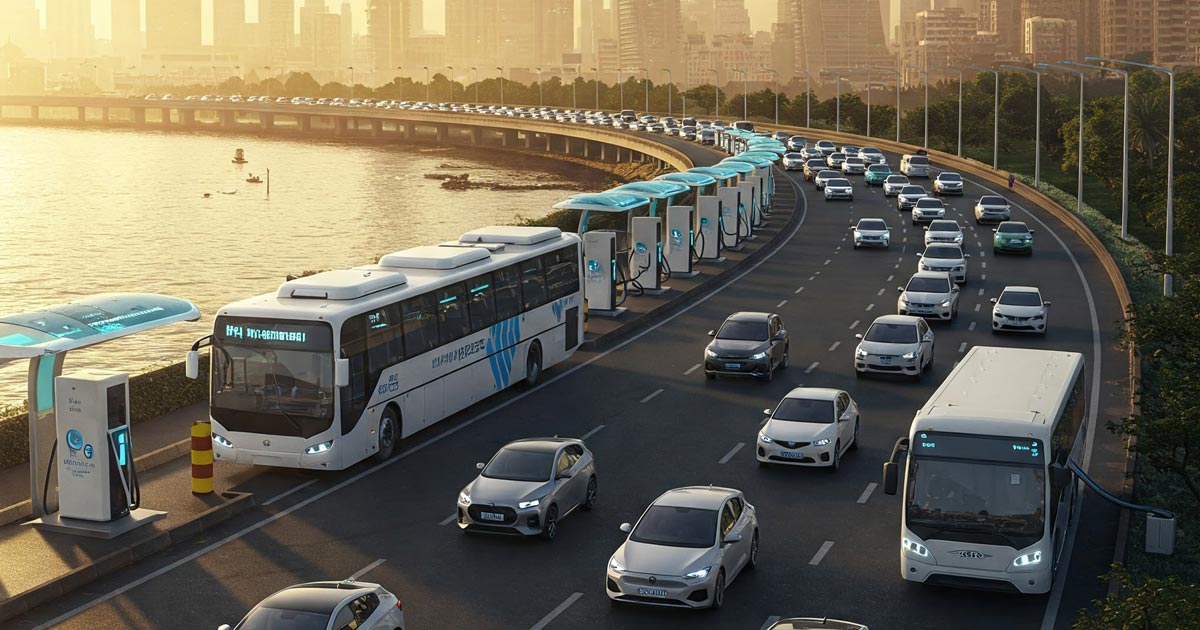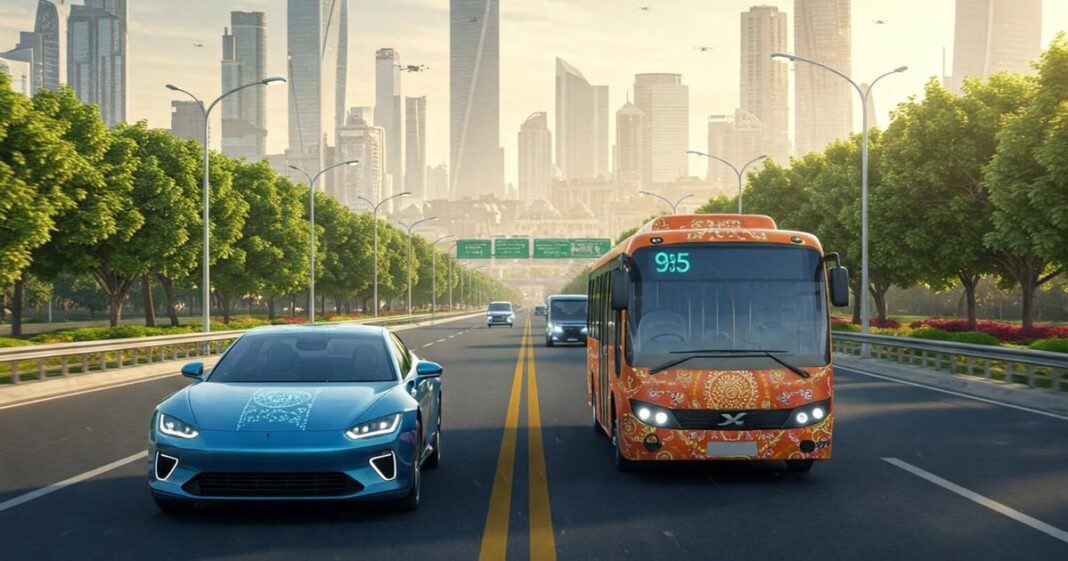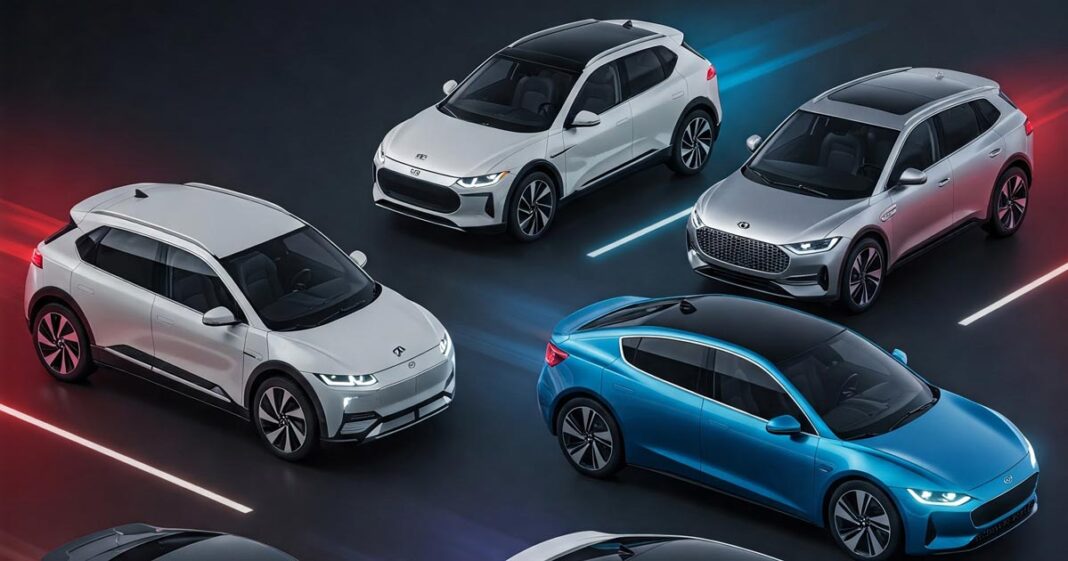Hydrogen vs Electric cars: India’s Clean Mobility Race Heats Up

In a world obsessed with going green, two futuristic fuels have taken center stage: electricity and hydrogen. Both promise zero tailpipe emissions, quieter rides, and freedom from fossil fuels—but they couldn’t be more different under the hood.
As 2025 unfolds, the question is louder than ever: Will hydrogen cars overtake electric vehicles in India, or is the EV wave too strong to stop?
Let’s break it down like a drag race—hydrogen on one lane, electric on the other, with the Indian consumer watching from the stands.
⚡ Electric Vehicles: The Current Champion
Electric cars run on batteries that store electricity, charged from the grid. India has embraced EVs in a big way—Tata, Mahindra, MG, Hyundai, and even startups like Ola are delivering new EVs faster than some people get their morning chai.
Key EV Highlights in 2025:
- Sales: Over 1.8 million EVs sold in FY 2024–25 (Mint).
- Infrastructure: 12,000+ public charging stations across India.
- Popular Models: Tata Curvv EV, Mahindra XUV.e8, BYD Seal.
🔬 Hydrogen Cars: The Challenger
Hydrogen Fuel Cell Vehicles (FCEVs) generate electricity by mixing hydrogen with oxygen inside a fuel cell, emitting only water vapor. Refueling takes just 5 minutes—no long charging hours.
Sounds amazing, right? But hydrogen cars in India are still in their infancy.
🚗 Real-Life Indian Pioneer: Toyota Mirai
Toyota partnered with the Indian government in 2023 to test its hydrogen-powered Mirai sedan on Indian roads. The pilot project—backed by NITI Aayog and IOCL—ran in Delhi-NCR using green hydrogen produced via solar-powered electrolysis.
Milestone Moment:
In 2024, the Toyota Mirai became the first hydrogen car in India to complete a 1,000 km zero-emission intercity trip, covered in The Times of India.
🧪 Hydrogen in India: What’s Happening?
- Indian Oil Corporation (IOCL) is setting up green hydrogen hubs in Panipat and Gujarat.
- Reliance Industries is investing ₹75,000 crore in green hydrogen production under its “New Energy” strategy.
- Ashok Leyland, backed by IIT-Madras, unveiled India’s first hydrogen-powered heavy-duty truck in early 2025.
Award Buzz:
Ashok Leyland won the “Innovation in Sustainable Transport” award at Auto Expo 2025 for its hydrogen prototype.
🥊 EV vs. Hydrogen: The Face-Off
| Factor | Electric Cars | Hydrogen Cars |
| Refueling Time | 30–90 mins (fast charger) | 5 mins |
| Range | 300–700 km | 500–800 km |
| Infrastructure | Expanding fast | Still very limited |
| Fuel Cost/km | ₹1–₹1.5 | ₹4–₹5 |
| Maintenance | Lower | Complex fuel cells |
| CO₂ Emission (Well-to-Wheel) | Low (depends on grid) | Almost zero (if green hydrogen) |
🧑🔬 Expert Insight: What Do Scientists Say?
In a 2025 report by the Centre for Science and Environment, researchers concluded:
“Hydrogen is the long-term future, especially for heavy-duty, long-distance transport. But for now, battery EVs are far more economical and deployable for Indian urban and mid-range consumers.”
Dr. Ritu Kaur, an IIT-Delhi professor specializing in sustainable transport, told The Hindu:
“Think of hydrogen as the marathon runner. EVs are the sprinters dominating the early race.”
🇮🇳 Government Policy Push
- FAME III Scheme (2025–28): Strong subsidies for both EV and hydrogen vehicle R&D.
- National Hydrogen Mission: Launched in 2021, with ₹19,700 crore allocation as of Budget 2025.
- Green Hydrogen Corridors: 3 pilot regions underway in Gujarat, Tamil Nadu, and Ladakh.
👨🏫 A Small Town Hero
Meet Shubham Patel, a mechanical engineer from Surat, who won the SIAM Young Innovator Award 2024 for developing a mini hydrogen fuel generator using biomass waste. His invention was featured in The Indian Express and got funding under Atal Innovation Mission.
Shubham now works with a Noida-based startup called HydroMobility, aiming to launch India’s first hydrogen two-wheeler prototype by 2026.
🎬 Bollywood Meets Hydrogen?
In an unexpected twist, actor Ajay Devgn was seen test-driving a Toyota Mirai in an ad campaign called “Paani Se Power”. The video went viral and brought hydrogen cars to dinner-table conversations across India.
🏁 The Verdict: Co-Existence, Not Competition
Hydrogen and electric aren’t enemies—they’re teammates with different strengths:
- EVs are perfect for urban transport, cars, scooters, and short trips.
- Hydrogen suits buses, trucks, long-haul, and heavy-duty use.
As of 2025, EVs are winning the popularity contest. But if India continues to invest in green hydrogen infrastructure, we may soon see buses and trucks silently zipping across the country, powered by the most abundant element in the universe.
📢 Final Thought
The battle between hydrogen and electric isn’t about which is better—it’s about which gets to decarbonize our roads first. One’s charging up the cities. The other’s fueling the highways.
And in a country like India, why choose one when we can champion both?





